Luisa Kuliok | |
|---|---|
 | |
| Born | Luisa Matilde Kullock 20 March 1954 |
| Occupation | actress |
| Years active | 1968-present |
Luisa Kuliok (b. Buenos Aires, 20 March 1954) [1] is an Argentine actress of theater, film and television.
Luisa Kuliok | |
|---|---|
 | |
| Born | Luisa Matilde Kullock 20 March 1954 |
| Occupation | actress |
| Years active | 1968-present |
Luisa Kuliok (b. Buenos Aires, 20 March 1954) [1] is an Argentine actress of theater, film and television.
From the age of five, she studied acting and did her first play in a school production when the lead was sick. Later, she studied with Agustín Alezzo and in 1976, the same year she married, she had her professional debut. [2] Kuliok is often credited as being the first international Argentine telenovela star. Her work in La extraña dama in 1989 was shown, became a hit in Italy and opened doors for the Argentine industry to expand into new markets. It also led to her being offered a role in Más allá del horizonte (Beyond the Horizon) replacing Gina Lollobrigida. [3] Kuliok worked primarily in television and telenovelas until 1994. The economic crisis that occurred in the ten years between 1994 and 2004 caused her to branch out into other entertainment venues. [4] In 2006, she was nominated for an ACE Award for her role in the theater production of Del Antiguo Oriente [3] and in 2010, she was nominated for her performance in El alma inmoral. [5]

Libertad Lamarque Bouza was an Argentine actress and singer, one of the icons of the Golden Age of Argentine and Mexican cinema. She achieved fame throughout Latin America, and became known as "La Novia de América". By the time she died in 2000, she had appeared in 65 films and six telenovelas, had recorded over 800 songs and had made innumerable theatrical appearances.

Bertha Moss, born Juana Bertha Moscovish Holm, was an Argentine actress of stage, television and film, famous for appearing in many Mexican telenovelas.
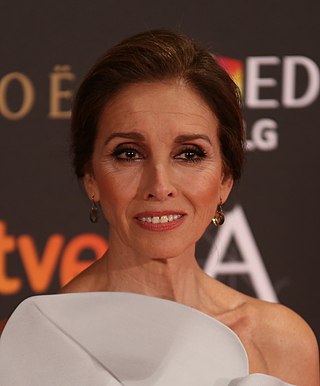
María del Pilar Cuesta Acosta, known professionally as Ana Belén, is a Spanish actress and singer. She and her husband are considered symbols of the Spanish Transition, and her songs and albums often feature boldly-titled works with social and political content.
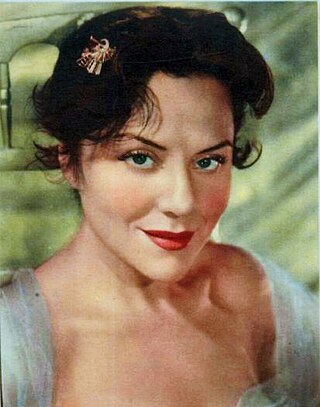
Amelia Bence was an Argentine film actress and one of the divas of the Golden Age of Argentine Cinema (1940–1960).

Mecha Ortiz was a classic Argentine actress who appeared in films between 1937 and 1981, during the Golden Age of Argentine Cinema. At the 1944 Argentine Film Critics Association Awards, Ortiz won the Silver Condor Award for Best Actress for her performance in Safo, historia de una pasión (1943), and won it again in 1946 for her performance in El canto del cisne (1945). She was known as the Argentine Greta Garbo and for playing mysterious characters, who suffered by past misfortunes in love, mental disorders, or forbidden love. Safo, historia de una pasión was the first erotic Argentine film, though there was no nudity. She also played in the first film in which a woman struck a man and the first film with a lesbian romance. In 1981, she was awarded the Grand Prize for actresses from the National Endowment for the Arts.

Olga Zubarry was an Argentine actress who appeared in film between 1943 and 1997. She made over 60 appearances in film, spanning six decades of Argentine cinema, but is best known for her work during the Golden Age of Argentine Cinema. Throughout the course of her career, she received four Silver Condor Awards, two Martín Fierro Awards, a Konex Foundation Award and several others for her films and television performances. She is credited with starring in the first film in Argentina which featured nudity, though only her back was shown and she stated repeatedly that she wore a flesh-colored mesh and was not truly nude.
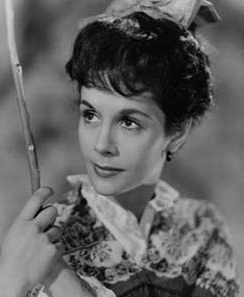
Delia Amadora García Gerboles better known as Delia Garcés was an Argentine film actress of the Golden Age of Argentine Cinema (1940–1960). She made almost 30 appearances in film between 1937 and 1959 and acted on stage from 1936 to 1966. She won the Premios Sur Best Actress award three times from the Argentine Academy of Cinematography Arts and Sciences, as well as the Argentine Film Critics Association's Silver Condor Award for Best Actress, the Premios Leopold Torre Nilsson, Premio Pablo Podestá, and the inaugural ACE Platinum Lifetime Achievement Award from the Asociación de Cronistas del Espectáculo.

Laura Ana "Tita" Merello was an Argentine film actress, tango dancer and singer of the Golden Age of Argentine Cinema (1940–1960). In her six decades in Argentine entertainment, at the time of her death, she had filmed over thirty movies, premiered twenty plays, had nine television appearances, completed three radio series and had had countless appearances in print media. She was one of the singers who emerged in the 1920s along with Azucena Maizani, Libertad Lamarque, Ada Falcón, and Rosita Quiroga, who created the female voices of tango. She was primarily remembered for the songs "Se dice de mí" and "La milonga y yo".

Guillermo Battaglia was a prolific Argentine film actor of the classic era of Argentine cinema.

Héctor Calcaño was an Argentine film actor. He appeared in nearly 70 films between 1933 and 1968.

Alita Blanca Barchigia, better known as Alita Román, was an Argentine film actress of the Golden Age of Argentine Cinema (1940–1960).

Francisco "Paco" Madrid was a Spanish (Catalan) journalist, writer and screenwriter.
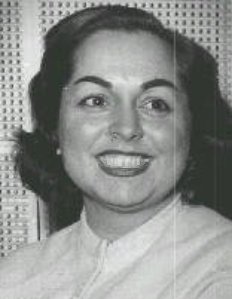
Nélida Dodó López Valverde known professionally as Nelly Beltrán was an Argentine actress. She appeared on the radio from the age of 10 and in 85 theatrical performances, 48 films and 3 dozen television shows between 1953 and 1996. She won a Martín Fierro Award as Best Comic Actress for her television work on La hermana San Sulpicio; participated in the film Pajarito Gómez which won the Best Youth Film award at the 15th Berlin International Film Festival; won a Konex Foundation Award; and was honored by the Argentina Actors Association in 2004 for her career contributions.

María Luisa Terán de Weiss, known in Argentina as Mary Terán de Weiss, and out of Argentina as María Teran Weiss, was a tennis player, the first Argentine woman to have a relevant sport performance in the international tennis tour.

Mónica Villa is an Argentine actress of stage, screen, and TV, as well as a researcher and educator. She earned a Best Actress award for her role as "Susana" in cult classic "Esperando la Carroza at the 1985 Festival de Cine Iberoamericano, in Huelva, Spain. She won an ACE Golden award for best leading actress in the 2002 comedy "Ojos traidores", a 2004 Premios Trinidad Guevara for best Actress of a Repertoire Company, a Premios Carlos de Oro for her 2011 performance as best lead actress in the theater production "Jardín De Otoño", and in 2015 a Premios Estrella de Mar for Best Female Performance in a Repertoire Company for "La Nona". In addition, she has been nominated for a Best Actress in a TV Special for the 2003 Premios Martín Fierro, making her acting work recognized in all three major media.

Amelia Mirel or Alma Bambú was the stage name of Amelia Ruggero, an early Argentine vedette, singer, and silent-film actress. After making approximately 20 movies, Mirel changed her stage name to Alma Bambú and began dancing in musical revues and burlesque theater.
Paulina Singerman Begun was an Argentine actress and businesswoman who primarily worked during the Golden Age of Argentine Cinema, performing on both stage and in films. In the later part of her career, she spent a decade performing for television. She was the younger sister of actress Berta Singerman. In 1981, she was awarded both a Diploma of Merit and a Platinum Konex for her comedy work in film and theatre.

María Elena Lucena Arcuri was an Argentine film actress of the Golden Age of Argentine Cinema (1940–60). She began her career in radio in the 1930s and reached her greatest success with the role of "Chimbela", which was later depicted in film, theater and television. Her extensive film career includes approximately 50 films, including notable performances in Chimbela (1939) and Una noche cualquiera (1951). During the 1940s, she participated in films with comedians like Pepe Arias, Pepe Iglesias "El Zorro", Niní Gambier, Mirtha Legrand and Carlos Estrada. Her most acclaimed film work occurred in Elvira Fernández, vendedora de tienda (1942) by Manuel Romero, Cinco besos by Luis Saslavsky and La Rubia Mireya for which she received the 1948 Best Comedy Actress Award from the Argentine Film Critics Association.
Claudia Roxana Castrosín Verdú, also known as Claudia Castro, is an Argentine LGBT activist. She presides over La Fulana, an organization that supports lesbian and bisexual women, and is also the vice president of the Argentine Lesbian, Gay, Bisexual, and Trans Federation (FALGBT), through which she has contributed to laws sanctioning same-sex marriage, gender identity, and medically assisted reproduction. In 2007 she presented, together with María Rachid, her partner at the time, the first judicial protection for declaring the unconstitutionality of two articles of the civil code that prevented marriage between people of the same sex. After the approval of the Equal Marriage Law in 2010, she married Flavia Massenzio and adopted a daughter, Estefanía.
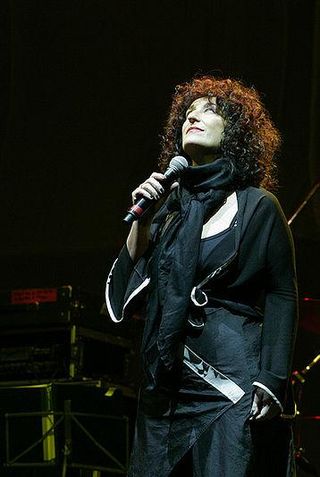
Julia Trzenko better known as Julia Zenko, is an Argentine singer and actress.